#taiheiki
Explore tagged Tumblr posts
Text
instagram
2 notes
·
View notes
Text


The first meeting of Ashikaga Takauji and Emperor Go-Daigo
26 notes
·
View notes
Text
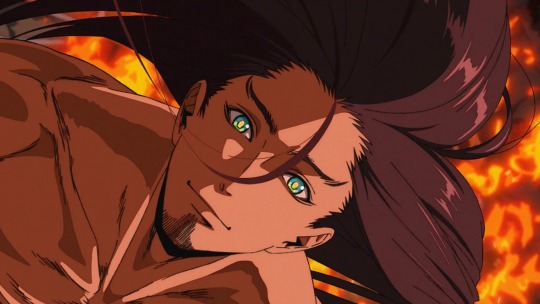
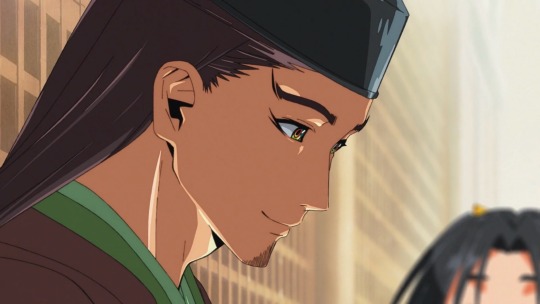
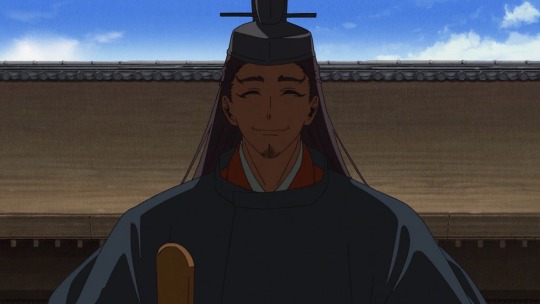
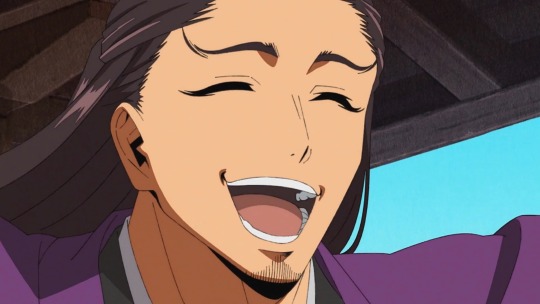
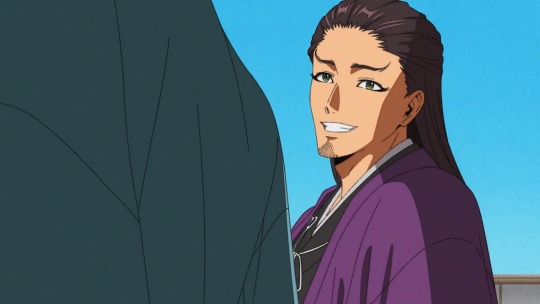
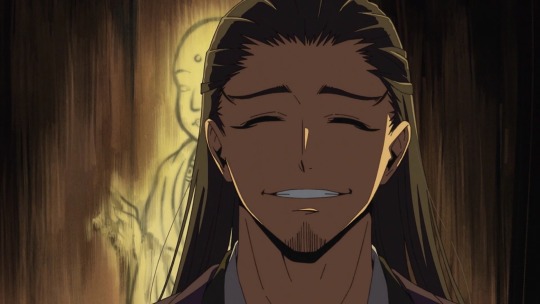
Ashikaga Takauji: Sin-namon roll ♨️
#the elusive samurai#nige jouzu no wakagimi#ashikaga takauji#this guy was played by sanada hiroyuki in the taiga drama 'taiheiki'#if you wanted further evidence of how phenomenally beautiful he is#squint and you could *almost* forgive him for war crimes and treachery
21 notes
·
View notes
Video
tumblr
The Japanese commercial for 'NHK Taiga Drama: Taiheiki' on the SEGA Mega Drive.
24 notes
·
View notes
Text

From the master of the warrior genre, or "musha-e" comes this print by Utagawa Kuniyoshi from his famous series Heroic stories of the Taiheiki, also known as heroic tales of the great peace. The irony is this series is far from peaceful. The man in this print is Negoro- no Komi-zucha dressed as a warrior-monk fighting with a long nail-studded club called a tetsubo and a broken naginata. One of the best designs of the series.
Date: 1848
Size: (H x W): 14.75 x 10.25 (inches)
49 notes
·
View notes
Text
Nobunaga and the "Dairokuten Maō faith"
This was described in a tourism website, so it might not be necessarily true. That being said, the article claimed that the reason why Nobunaga called himself the "Dairokuten Maō" was because he might be someone who is a participant of the Dairokuten Maō worship/faith.
To explain this a little: I once mentioned that the Dairokuten Maō is actually worshipped in some areas. There are various possible reasons, but one possible reason is that in non-Buddhist faiths, this "demon king" is viewed as a guardian.
As a demon, the Maō tempts people away from Buddhist enlightenment by worldly possessions. Gold and riches and lustful pleasure. Therefore, if someone doesn't believe in Buddhism, it would make sense for them to think that this is actually a good thing and perceive the Maō as some kind of god of prosperity instead.
Slightly related to the above, there were also some medieval texts linking the Dairokuten Maō to Amaterasu and/or other deities. I'm not sure if this is in any way relevant to the worship of the Maō, but it might be relevant to Nobunaga's actions.
This is a narrative that supposedly came from the Taiheiki (possibly a more modernised translation):
「イザナギ・イザナミの第一の御子神が、「この国の主と成て」伊勢に鎮座したとき、第六天魔王が現れた。魔王は、この日本の国に仏法が広まると力を失うという理由から、天照大神の働きを妨害しようとした。
そこ��天照大神は、魔王に「私は仏・法・僧の三宝には近づかない」と誓った。魔王は怒りを鎮め、その血で契約書を書き、天照大神に手渡した。「世界が滅び去るまで天照大神の末裔をこの国の主とする。もし、天皇の命に従わず、国を乱し、人民を苦しめるものがあれば、魔王の眷属が必ず罰を与え、死をもって報いさせよう」
[太平記]
When Izanagi and Izanami's first deity offspring "became the ruler of this land" and settled down in Ise, the Dairokuten Maō appeared. Since he would lose his power if Buddhism spread throughout the land of Japan, the Maō attempted to interfere with Amaterasu Ōmikami's actions.
Therefore Amaterasu Ōmikami swore to the Maō, "I will not come near the Three Treasures of Buddhism; the Buddha, Dharma, and the monks". The Maō's anger was appeased, and he wrote a contract in his blood which he gave to Amaterasu Ōmikami. "Until the world perishes, the descendants of Amaterasu Ōmikami shall be the rulers of this land. Supposing that anyone disobeys the Emperor's order, disturbs the country, or causes suffering to the people, the Maō's kin and house will surely punish them and repay it with death."
Some articles I've seen claim that there are also similar narratives where the ones who made the deal with the Maō were Izanagi and Izanami instead. As they were the creator-gods, this version escalates the Maō's importance even further. Though, I haven't seen any quotes of the actual text of this version yet.
The Taiheiki is a classic that I would expect the samurai lords of Nobunaga's time are familiar with. The idea that Nobunaga called himself the Dairokuten Maō based on the above Taiheiki text would lend some credence to the theories saying that Nobunaga might have been aiming to abolish the shogunate to restore power to the emperor.
As seen above, the Maō proclaims to be the emperor's protector, and also someone who safeguards peace in the nation. Even if Nobunaga doesn't particularly worship the Maō, he might have been inspired to view himself as that "Maō's kin and house" who puts to death those who disturbs the nation in service to the emperor.
Edit: It slipped my mind a little when I was originally writing this, but the argument against this would be that at the time of the Enryakuji burning, the head abbot of the temple was actually the emperor's brother. Nobunaga's attack on Enryakuji can be perceived as slight against the imperial household.
On the other hand, you could also argue that the Maō's protection only extends to the sitting emperor. Therefore, if Nobunaga was acting based on the Maō's promise written in Taiheiki, attacking Enryakuji is not against that principle.
#oda nobunaga#dairokuten maou#dairokuten maoh#demon king of sixth heaven#demon king of the sixth heaven#japanese history#sengoku#sengoku period#sengoku era#samurai#warring states#warring states era#warring states period#theory#feudal japan
15 notes
·
View notes
Text

(1992) NHK Taiga Drama Taiheiki
confusingly just called "Taiheiki" sometimes?
this is the PCE game. it has sample playback. it's p alright. it sounds a bit like how it looks
2 notes
·
View notes
Text
Brief story summary of the new Douman oneshot that I am currently obsessing over. It's about human Douman, and seems to be after he starts heading down the dark path and behaving more like Limbo.
It starts with him hearing about a house on the edge of town where a bird calls and everyone there is so happy and blessed, and they say the bird sings for them and their happiness. Douman goes and visits this house and they welcome him in and say they want to share their happiness and they treat him to food and sake.
He brings up the bird, and they're all like yes its wishing for our happiness! But he says he hears it saying how long are you going to keep ignoring things (How long=itsumade, which is the name of the youkai that shows up later)
He then talks to a girl who was married into the family, and who claims they're oni. She tells him how girls married in would then be killed, then the family would tell their parents how they died without giving any children, and were useless, and basically used that to exploit the family and get gifts and stuff from them.
They then start hearing the bird's cry "Itsumade itsumade" and Douman tells them to listen closely... They hear something coming from the back, though the old lady tries to deny it but everyone is clearly freaked out by it. And then the dead come back and brutally murder the whole family and they come together to form the vengeful spirit Itsumade, which appears in the Taiheiki, a famous Japanese epic.
Douman is quite excited about it and asks if it plans to eat him too. And how when he returns to the capital one day he's going to curse Seimei to death and so he's going to take its rage and resentment. Then its the fight scene, and finally as he leaves the young girl from the beginning asks about if he went there and he said yes and how he had a wonderful meal there and then laughs.
#fgo#fate grand order#Ashiya Douman#eh might as well tag this it might be useful? summarizing 60pg oneshot at 3am lol#Also human Douman uses the same polite speech as his servant self but doesn't have his habit of going mmmmmmmm all the time#I love the image in the opening showing presumably his younger kinder self as well as how he is here and Limbo#also how his outfit looks like the rakshasa king at the end#I was just saying the other day how i'd love to see human Douman's corruption into the cruel person his Servant self is born from#This was such a surprise treat!!!#I was actually drawing him and danzou when i saw my fav LimDan artist retweet the announcement ahaha
22 notes
·
View notes
Text

Taiheiki doesn't resonate with me quite as much as Heike Monogatari and Gikeiki so reading progress is fairly slow, but I like that it establishes Mara wears a helmet inscribed with his own name
18 notes
·
View notes
Text
The generations of emperors thought always, "Would that the eastern barbarians might be struck down!" For it was in their hearts to comfort the spirit of the imperial exile of Shokyu; likewise, they sorrowed to think upon the court's power, how it wasted and became as nothing. Yet they abode in silence, troubled that the design was beyond their compass or the time was not fitting. But then came the day of the lay monk Taira no Takatoki Sokan, the former governor of Sagami, a descendant of Tokimasa in the ninth generation. Then indeed was change close at hand in the mandate of heaven and earth! The deeds that Takatoki did were exceedingly base, and he was unashamed before the scorn of others. Without righteousness did he govern, not heeding the people's despair. By day and by night, with wanton acts he dishonored his glorious ancestors under the ground; in the morning and in the evening, with vain merriment he invited ruin in his lifetime. (...) Those who saw knit their eyebrows, and those who heard uttered condemnations.
- The Taiheiki, translated by Helen Craig McCullough
#book learning#im very interested in takatoki (waka's father) i want to hear more about his craziness#what kind of house did waka grow up in...
2 notes
·
View notes
Text
2 notes
·
View notes
Text

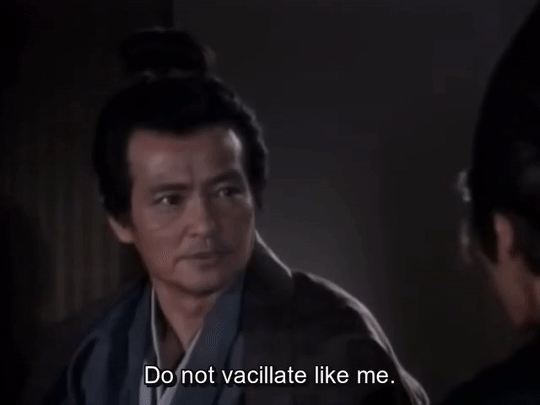
#taiheiki#taiheiki (1991)#ogata ken#sanada hiroyuki#jdrama#taiga drama#ashikaga sadauji#ashikaga tadauji#nhk taiga
8 notes
·
View notes
Text
SIF2 Daily Theatre: 2024-01-11

(Transcription after the break.)
[Image transcription:]
SIF 2 Daily Theatre for 2024-01-11
Spare the Rod and Spoil the Child!?
Dia: Alright girls, once warm-up exercises are over, we'll be doing our long distance run! Hanamaru: Dia-san, I've got a question, zura! Dia: Hmm? What is it, Hanamaru-san? Hanamaru: Who planned the route for today's long distance run? Dia: It's by You-san. Hanamaru: Uugh... That's gonna be a harsh one, zura... Dia: Isn't that perfect in helping us to re-shape our bodies that have become rusty over the winter holidays? Hanamaru: No way, zura~! Maru's body is still tired from the holidays, zura! So, please assign a simpler running course! Dia: Rejected. Hanamaru-san, don't you know the proverb "spare the rod and spoil the child"? In the Japanese tale "Taiheiki", the lion threw her cubs into a deep valley so that only those that could climb up would be raised by her... Hanamaru: Dia-san, you would never throw Maru down a cliff!! Dia: Of course I will not actually do that to you... Hanamaru: Dia-san, even though you have been strict, you have always been watching over Maru so warmly, zura! So, please don't push us too much, zura! Dia: Y-you have a point... I suppose I cannot be too strict.... Hanamaru: Don't you agree, Dia-san...? Maru... will do her best, so please reconsider a more relaxing course...? Dia: T-then, we will go with Riko-san's running course. Hanamaru: Hoorayyy!
[End transcription.]
11 notes
·
View notes
Text

Endo Kiemon Naotsugu (1848-1850) from the series Taiheiki eiyuden (Heroic Tales of the Taiheiki), by japanese woodblock prints master Utagawa Kuniyoshi (歌川国芳, 1797 - 1861)
17 notes
·
View notes
Text


The first thing to say is that this is not an upside-down Mickey Mouse logo.The famous Japanese confectionery company Aoki Shofuan was founded in 1984. Its iconic milk steamed bun "Tsukigesho" is a classic Osaka souvenir.Disney filed a lawsuit against the company in 2021,claiming that its trademark deliberately imitated the logo of Disney's iconic character Mickey Mouse.One of their arguments was the opening of Tokyo Disneyland in 1983 when was the year before Aoki Shofuan opened,that means the latter was trying to capitalize on the popularity of the former to attract customers,even though Tokyo Disneyland was actually not very famous in Japan at the time.
Aoki Shofuan said that the inspiration for the trademark they used was taken from Mt. Amanokaguyama,Mt. Unebi and Mt. Miminashi,which are collectively known as "the three mountains of Yamato" in Nara Prefecture.The relative positions of these three mountains form an equilateral triangle,and if the three mountains are drawn as three circles,it will look like a Suhama crest(洲浜紋),the Japanese kamon,that inspired them to create the logo based on it.Suhama originally referred to an island-shaped sandbar such as a delta formed at the mouth of a river,the platform modeled after this was called "suhamadai",and the Suhama crest was created as a design (kamon) that stylized suhama and suhamadai.The Suhama crest is already recorded in the Muromachi period's historical epic Taiheiki, so it can be traced back to at least the 14th century,when is six centuries earlier than 1928,the year the Mickey Mouse movie was first released.
The Japan Patent Office finally ruled that Aoki Shofuan’s trademark is “just a combination of three circles of different sizes” which doesn't give people a strong association with Mickey Mouse,the Mickey’s popularity in Japan is far less than it's now when the early stages of opening of Tokyo Disneyland,and the Japanese confectionery company has a weak relationship with Disney's entertainment business that isn't enough to cause people to confuse both,so Aoki Shofuan does not infringe the copyright.

The Suhama crest,the kamon of the Sanada clan of the Matsushiro Domain of Shinano.




Many variations of the Suhama crests.
#Aoki Shofuan#青木松風庵#Mickey Mouse#Disney#Copyright litigation#Suhama crest#洲浜紋#kamon#家紋#15th clan emblems#Japanese culture#the trademark version of “Kimba the White Lion plagiarizes The Lion King”#At least Disney isn't accused of plagiarism
0 notes
Text

(1991) Taiheiki
the other taiheiki, without a subtitle. cd only. one track only, or at least that's all i could find that was ripped.
it's........ fine. sure. orch whatever.
0 notes